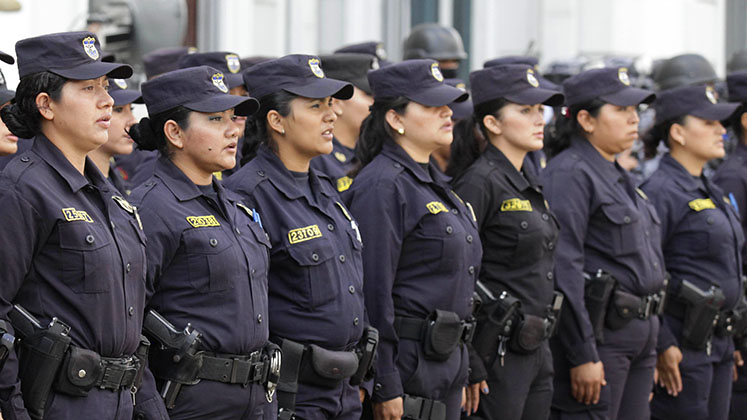Highlight 22/2023 – Gender mainstreaming of LAC police forces: Lessons learned from Argentina and Honduras
Alex Guerrero, 19 July 2023

The Latin America and Caribbean (LAC) region has advanced remarkably in recent decades in mainstreaming gender and acknowledging women’s right to defend their nation. However, women still endure discrimination, harassment, and gender-based violence (GBV) both in society and in the national police.
The police can mirror society, as it was established before the state itself in many LAC countries. Hence, examining their policies and culture can provide insight into how LAC society operates at its core.
Nowadays, LAC societies persist in combating a deep-seated patriarchal mentality. Although the region had advanced remarkably in recent decades in mainstreaming gender and acknowledging women’s rights, countries still display obstacles to integrate gender and respect the rights of women and the LGBTIQ community.
Furthermore, several internal challenges have been detected within the different police forces. In the case of Honduras, it faces several internal challenges inside their national police forces. Personnel are poorly trained in terms of gender, with only senior officials receive the training, and there is an absence of reliable reporting mechanisms. [1] It is also observed that there is a latent internal culture of discrimination towards women and the LGBTIQ community.
Others, such as Argentina, exhibit a better scenario, with a comprehensive legal framework to prevent and tackle gender-based violence (GBV) or discrimination. This does not imply that Argentina is exempt from these problems; however, at the governmental level, it implements more effective cross-sectoral policies to address them.
For example, the implementation of policies such as the Micaela Law, which requires mandatory training on gender for all people who work in public service, regardless of the hierarchies. This ensures the adequate training of the staff and adds a gender perspective to the force’s decisions. Additionally, Argentina has created the Integral Gender Centres (IGC), which collects the anonymous complaints from the officers and forwards them to the ministry of justice, to investigate and punish the perpetrators.
This can serve as a normative example of how to apply tools that help tackle institutional GBV and discrimination, for those countries within the region with little gender mainstreaming in their policies, such as Honduras.[2]
Thus, after having analysed different policies and cases of the national police in the region (specially the Argentinean Federal Police and the Honduran National Police), it is concluded that in the interest of security sector governance, the following is required:
- Political will and adequate resources.
- Define an institutional gender group that proposes and evaluates strategies (such as the IGC in Argentina).
- Promote an institutional culture of zero tolerance towards harassment and discrimination, with a top-down approach.
- Strengthen training processes with a focus on human rights, diversity, and intersectionality.
- Create spaces for attention to victims and to reach out to the community to build trust.
- Increase the participation of women in the institution, establish gender quotas, create regional support and coordination networks.
- Promote the exchange of good practices between countries in the region.
[1] COSUDE, DCAF and CONADEH, Autoevaluación políticas de Género de la PNH, HNP, 2022, pp. 13-15 (book)
[2] COSUDE, DCAF and CONADEH, Autoevaluación políticas de Género de la PNH, HNP, 2022, p. 18 (book)
Alex Guerrero, Highlight 22/2023 – Gender mainstreaming of LAC police forces: Lessons learned from Argentina and Honduras, 19 July 2023, available at www.meig.ch
The views expressed in the MEIG Highlights are personal to the authors and neither reflect the positions of the MEIG Programme nor those of the University of Geneva.
